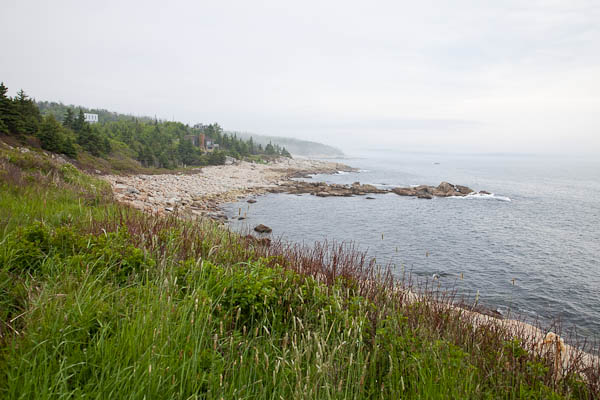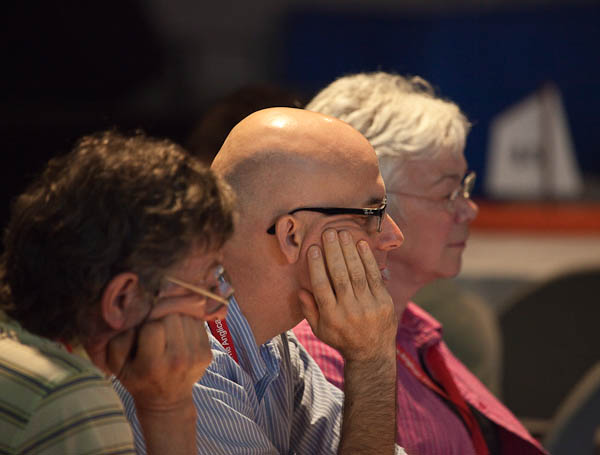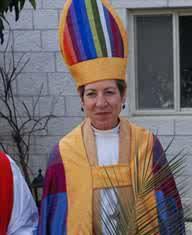Notes from the Underground.
Holy Post has published a variation on this article. Also Eternity Magazine.
I am in Halifax, Nova Scotia attending the 2010 General Synod of the Anglican Church of Canada.
Every 3 years clergy and lay people from all over the country meet to discuss and set church policy; one of most pressing items on the agenda is the decline in church membership.
In 1961, 1.3 million people attended an Anglican Church; in 2001, 658,000 attended and in 2009 325,000. A simple 3 point graph shows that, if nothing changes, by around 2040 there will be 1 person left. A 3 point graph may not yield the most accurate predictions, but one thing is abundantly clear: in Canada the Anglican Church is in rapid decline.
That is why the Church has begun a program to revitalise itself: Vision 2019 – Where do you want the church to be by 2019. A consulting company was employed to poll the faithful; the number of people who responded (around 1000) was disappointing and the results vague. But, then, perhaps the only consistent answer that could realistically be expected from such a poll is “in 2019, we want the church to be still in existence”. The cynical might think that too ambitious.
Another recurrent – obsessive even – theme will be the blessing of same-sex unions. In this synod, a valiant attempt is being made to circumvent the heated arguments normally generated by this topic. Rather than the free-for-all debates that few look forward to, delegates will be meeting in small groups to shape (or manipulate, depending on your perspective) resolutions which will then be passed to the floor.
The Church is trying to maintain a delicate balance: on the one hand it has been apparent for well over a decade that the intent of the Anglican leadership is to convince Canadian Anglicans that same-sex attraction is God-given and, therefore, active same-sex partnerships are holy and entirely consistent with Christian principles. On the other hand, there are over 60 million Anglicans that don’t agree and want Anglican provinces like Canada and the US booted out of the Anglican club. It looks as if the finesse that will be attempted at this synod is to squash motions that would publically commit the whole Canadian church to the blessing of same sex unions. Instead, synod will push for the local option: dioceses and churches that want to proceed can do so – the decision will be delegated down. Even the most naive will be able to see through this ruse, of course: get those who work for you to make the tough decisions so you can’t be held accountable.
The third important item on the agenda is whether to sign the Anglican Covenant, a document that commits signatories to consulting the worldwide Anglican Communion before making major decision.
The synod is taking place between June 3rd and June 11th. I am writing a live blog of the goings–on the AEC blog and also posting my impressions of the continuing discussions here.
Normally wild horses could not drag me to spend a week witnessing the meanderings of 400 Anglicans ruminating on the state of the church. However, as a conservative Anglican blogger, when I first applied to attend Synod, I detected subtle intimations that my presence would not be a cause for rejoicing; what greater incentive to come could I have asked for?
Stay tuned for more news as the week unfolds.
David Jenkins blogs at anglicansamizdat.com
Like this:
Like Loading...




 Hat as a subtle reminder to us Canucks what it’s really all about.
Hat as a subtle reminder to us Canucks what it’s really all about.